Lawmaker Warns About Medicine Shortage In Iran
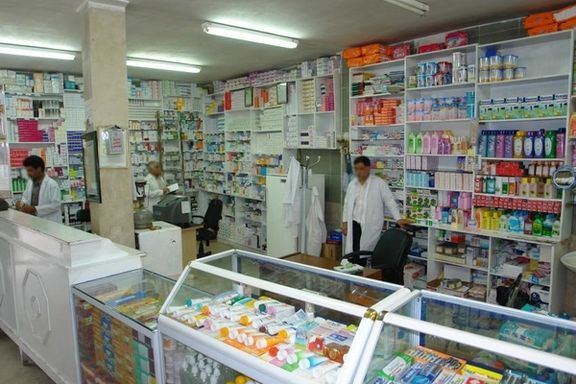
An Iranian lawmaker has warned about shortage of medicines, saying that "the financial resources foreseen in the budget bill for the next Iranian year are not sufficient at all."

An Iranian lawmaker has warned about shortage of medicines, saying that "the financial resources foreseen in the budget bill for the next Iranian year are not sufficient at all."
Mehr state news agency quoted Hosseinali Shahriari on Sunday that due to insufficient financial resources, "we will face problems regarding medicines and medical equipment next year [beginning March 21]."
According to the Iranian parliamentarian, "officials do not have accurate statistics on medicine supplies, and there is constant shortage of even ordinary drugs."
In current Iranian year, ending March 20, the medicine crisis intensified as people witnessed multifold increase in prices. The government scrapped an import subsidy for food and medications last year.
Iran’s rail fell to more than 600,000 in late February from 300,000 in late August. Although the national currency bounced back in the past ten days it is still down 50 percent compared to six months ago.
Parallel markets including gold, gold bullions, and even vehicles, both domestically produced and foreign made, will immediately reflect the change with higher prices. Essential food items, such as red meat, have already risen to unprecedented highs, making them unaffordable to the majority of people.
Based on a bill approved by the parliament, drug prices were supposed not to increase this year, but according to the head of the parliament's health commission, "this did not happen and the price of many drugs, especially those for diabetic and cardiovascular diseases soared and patients' out-of-pocket payments increased accordingly."
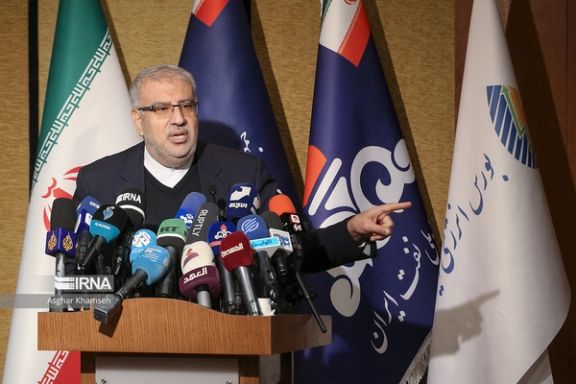
Iran’s oil minister Javad Owji said Sunday the country’s exports are at its highest point since 2018, claiming that $14 billion of oil revenues has been injected into the economy.
His claims come at a time when Iran is is serious need of hard currency, with its national currency extremely weak and volatile.
The oil minister boasted that the country has achieved the new record in exporting oil despite the US sanctions following the US pullout from the 2015 nuclear deal and imposition of all-out measures. Owji claimed that since 2018 when the Trump administration re-imposed sanctions on the Islamic Republic, more and more punitive measures have been put in place as European states, insurance companies, shipping companies, ports and other trade mechanisms are abiding by the US sanctions.
He said that despite the measures, the oil ministry has injected $14 billion into the country’s foreign currency trading services in the past 11 months. He added that Iran’s oil exports have increased 190 million barrels compared from two years ago -- from March 2020 to March 2021 -- and 83 million barrels more that the figure of the previous Iranian year, which ended in March 2022. "We exported 83 million more oil barrels since 21st March 2022 compared to the same period last year. This represents 190 million more oil barrels exported compared to the period March 2021 to March 2022," he said.
But bringing back $14 billion from oil exports is a fraction of what Iran needs to balance its budget, without taking into account secret military expenditures and assistance to its proxy forces in the region. Generally, an annual oil export revenue of $60 billion is considered the minimum for Iran to keep its finances afloat.
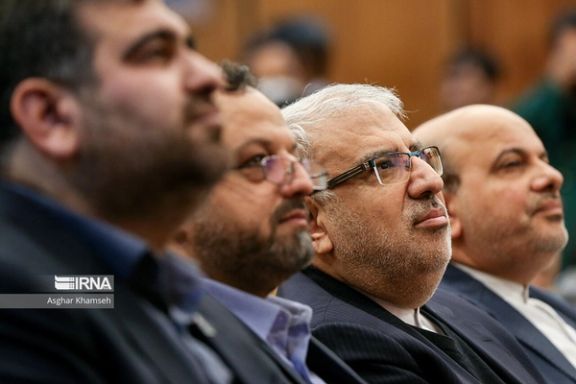
Owji did not disclose the exact number of barrels exported by the country but most of its exports go to Chinese small refineries, but it is not clear how much they pay per barrel or whether they pay in hard currencies to Iran or barter the oil with goods. Iran does not reveal how much it earns from crude oil exports, but if we take the lower estimate of 0.6 million shipments p/d and an average price of $90 p/b for 2022, revenues should total $20-22 billion for the 12 months of 2022.
While many oil industry sources say Iran exports around one million barrels of crude per day, others believe the volume is much less and the income modest.
TankerTrackers, Vortexa, Kpler, and other sources estimate Iran exported anywhere from 810,000 to 1.2 million barrels of crude oil per day in recent months. Iran keeps the export volume secret, but top officials constantly claim revenues are increasing.
In recent days, Iran’s currency rial has gained against major international currencies after a political rapprochement with Saudi Arabia that unlocked diplomatic channels between the two countries after seven years. The rial closed at over 450,000 against the US dollar on Saturday, up from a historic low of 600,000 in late February.
Elsewhere in his remarks, Owji also claimed that the Islamic Republic and Saudi Arabia will bolster their cooperation in the framework of OPEC. The CEO of Saudi Arabian Oil Group -- or simply Aramco -- Amin H. Nasser says Saudi-Iran agreement to mend relations will enhance regional stability and have a positive impact on the global oil market.
He said spare capacity remained tight at 2 million barrels per day, while demand for jet fuel was increasing alongside China's re-opening from tight Covid restrictions.
"If you consider China opening up and a pick-up in jet fuels and very limited spare capacity, we are talking 2 million barrels, so as I said we are cautiously optimistic in the short to midterm and the market will remain tightly balanced," he said.
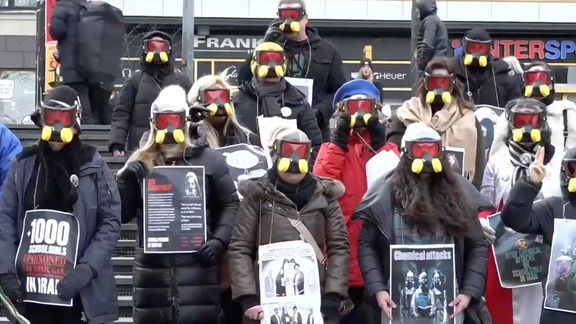
Demonstrations took place across the United States and Canada on Saturday to condemn the more than three months of chemical attacks on girls’ schools around Iran.
The United States is home to the world's largest Iranian community outside the country with almost 400,000 living there.
The Iranian diaspora led rallies in cities including New York and Washington, where hundreds of participants marched in front of the White House to demand the support of the US government and the international community for the protests inside Iran.
Similar events were also held in San Diego and Philadelphia. In Canada, Iranians joined forces in Montreal, Ottawa, Toronto and Vancouver to show solidarity with the hundreds of girls affected by mysterious chemical attacks in scores of schools across the country since November.
In Toronto, protesters held a rally in front of the Parliament of Ontario province, chanting slogans to censure the attacks on schoolgirls in different cities of Iran including Tehran, Qom, Karaj, Boroujerd, etc.
The government has aired ‘confessions’ of those allegedly responsible for the attacks which started three months ago as a man and his daughter forced to speak to national TV. The broadcast has all the trademarks of the regime’s forced confessions.
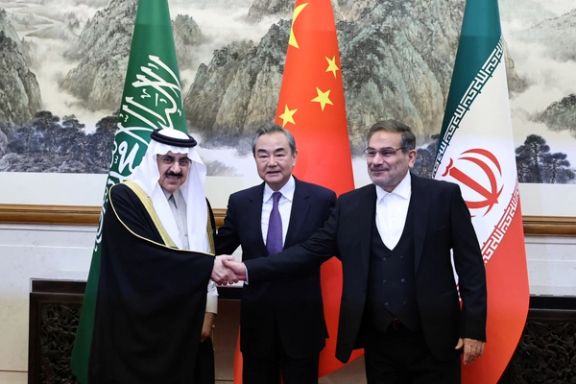
Saudi Arabia will watch Iran's behavior during the two-month window agreed upon to restore relations, Saudi columnists said on Sunday.
The opinion reflected continued wariness in the longtime rivalry between the region's Sunni Muslim and Shi'ite powers.
The breakthrough on Friday brokered by China, a major trade partner of both countries, followed several rounds of Saudi-Iranian talks held in the region in a bid to contain tensions, at a time of frustration by Saudi Arabia and regional allies over what they perceive as gradual US disengagement from the region and negotiations with Iran.
Tehran and Riyadh said they had agreed to resume diplomatic relations and re-open embassies within two months, adding that their foreign minister would meet to implement the deal, without mentioning a more detailed timeline.
"The two-month period ... is the first test of Iran's credibility and proof of good intentions as we must see the start of real change in the regional landscape and a real correction in its dealings with the Kingdom," Saudi columnist Hamoud Abu Taleb wrote in Okaz, a Saudi daily.
A main source of tension is Yemen, where Riyadh leads a military coalition that has since 2015 been battling the Iran-aligned Houthi movement -- which has during the war launched missile and drones at the kingdom.
Abdullah al-Otaibi, in an Op-ed in Saudi-owned Asharq Al-Awsat newspaper, agreed the timeline to reopen embassies would "test" Iran's commitment and said Beijing could play a more effective role than "failed" Western efforts with Tehran.
Persian Gulf Arab states have grown increasingly disillusioned with key ally and security guarantor the United States, including over global powers' 2015 nuclear pact with Iran which they deemed flawed for not tackling Iran's missile program and proxies.
Since the news of the Iranian-Saudi deal broke on Friday, many commentators have seen the development as a win for China that brokered the agreement.
The Wall Street Journal in an editorial blamed Biden and the Democrats for annoying the Saudis and pushing them into China’s arms. The Journal said, “the symbolic import is hard to miss as Democrats in Washington do everything they can to harass and annoy the Saudis,” adding that getting a cold shoulder from Washington Riyadh decided to “hedge” its bets.
Saudi Arabia and the United Arab Emirates have moved to assert more control over regional stability by pursuing conciliatory foreign policies they hope will allow them to focus on economic priorities.
The Wall Street Journal and the New York Times reported this week that Saudi Arabia is demanding concessions from the Biden administration to join the peace accords with Israel. It wants US assistance in developing a nuclear power industry and less restrictions on arms sales to the kingdom. Many see the Chinese-brokered deal with Iran as further pressure by Riyadh on both the United States and Israel.
"It is natural to have diplomatic ties even if at a low level because Iran's expansionist approach has created many touch points with Saudi Arabia....(But) we have to keep our eyes open," wrote Saudi columnist Tariq al-Homayed.
"China is the guarantor for this agreement. This will be important if Iran does not comply," he added.
The United States has voiced reservations about deepening ties between Persian Gulf states and its economic rival China, whose president attended a Gulf summit in Riyadh last year at a time of severe strains in the strategic US-Saudi relationship.
Riyadh and Abu Dhabi have repeatedly said they are looking to diversify their strategic partners while pressing Washington for concrete commitments to regional security.
With reporting by Reuters
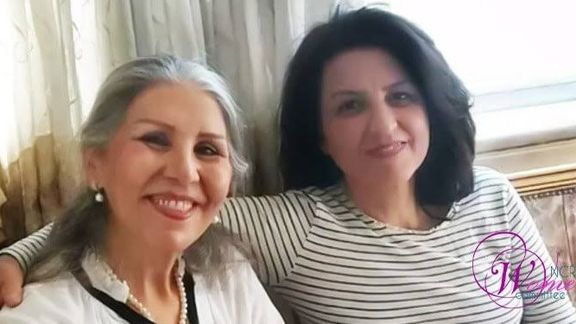
A group of Iranian civil activists issued a statement protesting "heavy and unfair" sentences against two well-known Baha'i figures.
Bahai community leaders Fariba Kamalabadi, 60, and Mahvash Sabet Shahriari, 70, were handed new 10-year sentences in December after having served 10 years previously on charges of threatening national security.
”The two women have spent many days of their lives in prisons for being Baha'i. No one should be harassed or persecuted just because of their beliefs and religion," reads a statement signed by journalists, lawyers, former political prisoners and activists inside and outside Iran.
The group said the accusations against the women are “baseless”, the ‘trial’ conducted in November lasting just one hour. At the time, the Baha'i International Community said it was "an unbelievable injustice”.
It is four years since the two ladies were released from their first decade-long sentence, and activists including Shirin Ebadi and Atena Daemi, say the two are being persecuted on “unfounded charges".
The Shia clergy consider the Baha’i faith as a heretical sect. The Baha'i community, who number around 300,000 in Iran, are systematically prosecuted, discriminated against, and harassed. They cannot hold jobs in the public sector and are sometimes sacked from their jobs in the private sector under pressure from authorities.
In September, the BIC reported 245 incidents of persecution over 32 days, with arrests and imprisonment, the destruction of homes and confiscation of properties, raids on private and business premises, beatings, the denial of medication to detainees and the denial of higher education to more than one hundred young people.
Human rights defenders and international institutions always consider the behavior of the Islamic Republic of Iran in dealing with Baha’i citizens as a "systematic violation of human rights".
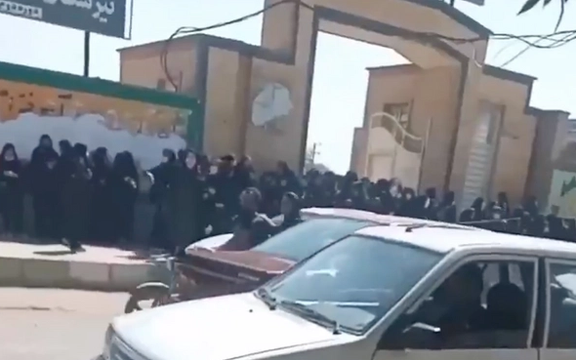
Iran's interior ministry announced Saturday the arrest of over 100 people in eleven provinces in connection with poisoning attacks on dozens of girls’ schools.
The attacks that started three months ago have continued without any apparent effort by the government to seriously pursue the perpetrators or explain to terrified parents and students what was happening in so many schools.
In its statement, the ministry attributed some of the poisoning attacks to “pranks” by students using “foul smelling and harmless substances” in an attempt to get their classes dismissed.
“Among the detainees there are individuals with hostile motivations,” the statement said, adding that these individuals meant to cause fear and panic among the people to shut down schools and cast the blame on the regime.
“These individuals are under investigation to reveal their possible connection with terrorist organizations such as the monafeghin,” the statement said. Iranian authorities always refer to the Mujahedin-e Khalq Organization (MEK) as monafeghin (hypocrites).
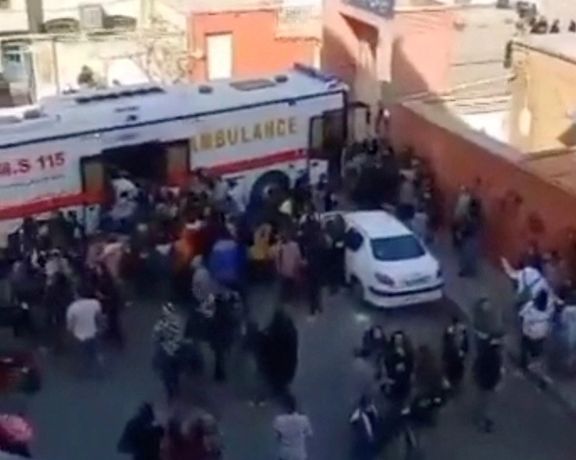
The statement reveals very little about the arrests but two days earlier the local channel of the state television in Fars province aired the so-called ‘confessions’ of a man and his daughter arrested and accused of attacking schools with N2 gas canisters. The statement provided no names for those arrested or any other information.
Many ordinary Iranians have been suspicious of involvement of the regime itself, or religious extremists protected by the regime, in the school attacks and call the acts “state terrorism”.
“There is strong suspicion that the purpose of the attacks is quashing the Woman, Life, Freedom movement by instilling fear among girls and their families,” an umbrella teachers' association said while calling the attacks “bioterrorism” and demanding Supreme Leader Ali Khamenei and other top religious figures to condemn the attacks expressly and decisively.
Diaspora Iranian held protests Saturday in 70 cities around the world to demand action to stop the school attacks.
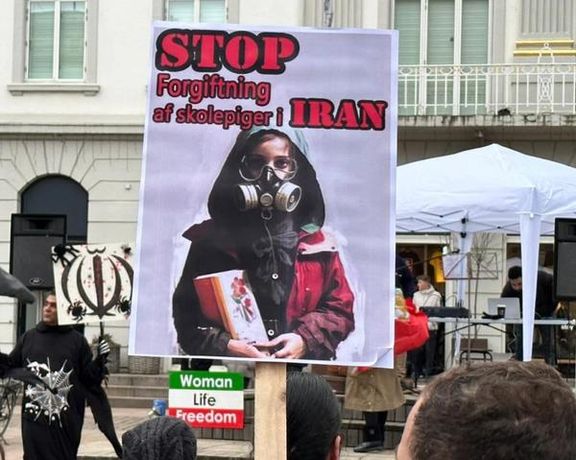
The ministry said in its statement that there is a “considerable drop” in school poisoning attacks although seven more schools were affected on Saturday and tens of students had to be taken to hospital.
Attacks were reported in southwestern Khuzestan province where four schools were targeted. Tens of poisoned students had to be taken to hospitals also in southern Fars, western Kordestan and in northern Gilan provinces.
In a report Saturday, the judiciary claimed that “less than ten percent” of students reported poisoned so far had inhaled “an irritant gas which is not of weapons grade or deadly” and the remaining ninety percent were only affected by stress and other psychological factors.
In an article entitled “Casting Light On Psychological Operations Of Criminals In Student Poisoning Incidents” on Tuesday, the hardliner Mashregh news website accused a banned teachers’ association of using the attacks to wage psychological war against the Islamic Republic to revitalize the protest movement.
The article claimed that it was the MEK that described the school poisonings as ‘chemical attacks’ for the first time and alleged a connection between MEK and union activists who also referred to the incidents as chemical attacks on schools.
Earlier this month, the association urged its members and others to stage protests to demand urgent resolution to school attacks as well as teacher’s own problems including a wage increase for the next year that takes the factor of inflation into account.
In response to the association’s call, teachers and parents held rallies in dozens of cities and chanted slogans such as "death to the child-killing regime".
“Think-tanks of security and intelligence bodies are projecting their own responsibility over the poisoning of students and building new legal cases against union and civil activist,” Mohammad Habibi, spokesman of the Iran Teachers’ Trade Association, said in an Instagram post Saturday.
Habibi vowed that teachers would continue to defend “our children and their achievements [in the protest movement].” “Our message to them is clear: we will not withdraw [against pressures by the security forces].”